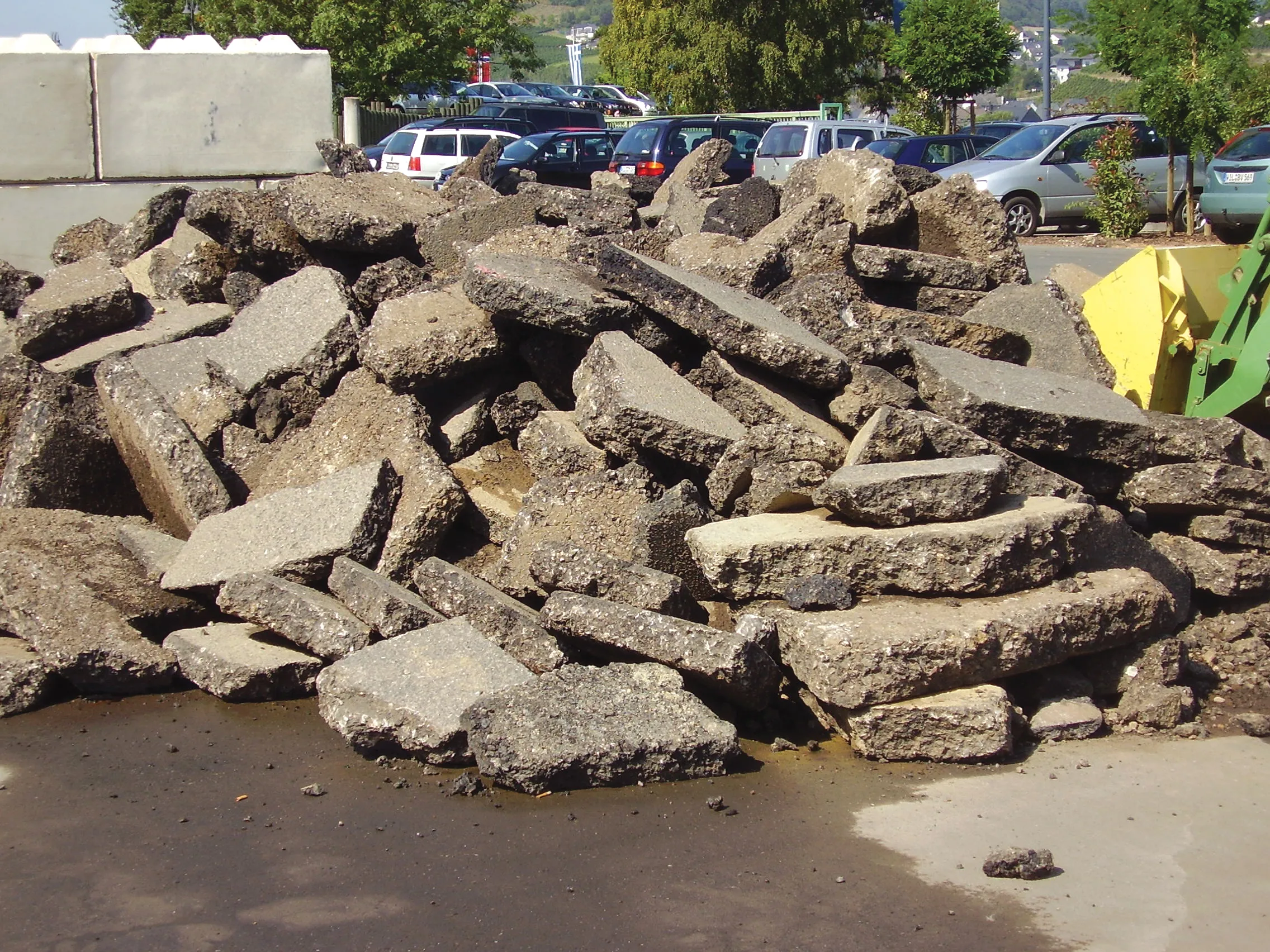A new startup business with its origins in a Purdue University innovation could help extend the lifetime of concrete structures.
Paul Imbrock, founder and president of Environmental Concrete Products, said the company's Fluid iSoylator product can be used to protect new and existing concrete. He said hardened concrete sustains damage when fluids on the surface are absorbed into its network of pores, similar to those in a sponge.
"When the fluid, which could be water that contains salts or other ions,
January 4, 2016
Read time: 3 mins

A new startup business with its origins in a Purdue University innovation could help extend the lifetime of concrete structures.
Paul Imbrock, founder and president of Environmental Concrete Products, said the company's Fluid iSoylator product can be used to protect new and existing concrete. He said hardened concrete sustains damage when fluids on the surface are absorbed into its network of pores, similar to those in a sponge.
"When the fluid, which could be water that contains salts or other ions, saturates the pore network, it will expand inside the concrete and initiate damage upon freezing," he said. "If the fluids evaporate instead, the ions remain and crystallise in the pores, which also creates damage. New fractures caused by either method of damage allow for even more ingress of fluids, which repeats the cycle and creates further damage that will destroy the concrete over time."
Purdue researchers have developed a hydrophobic sealant that could prevent potentially damaging fluids from entering concrete pores. The technology was licensed to Environmental Concrete Products through the Purdue Research Foundation Office of Technology Commercialisation.
"Our product is absorbed into dry concrete's pore network to create a hydrophobic barrier that prevents potentially damaging fluids from entering," Imbrock said. "Along with protecting concrete from the elements, Fluid iSoylator is derived from soybean oil and is safe to handle and apply. Its physical properties also make it possible to be adapted for other potential uses, including a combination paint-and-sealing product."
Imbrock said traditional concrete sealants on the market create a film on the surface of concrete through a chemical reaction between components mixed together or with oxygen.
"Although this approach works well in ideal conditions, the film might be damaged by traffic or other abrasions. It becomes counterproductive, then, because fluids can enter the area where the film is damaged, but the film also prevents them from evaporating, leaving them susceptible to freezing," he said. "Fluid iSoylator is different because when it enters the concrete's pores, it remains fluid regardless of traffic or abrasions. The pores are filled with the material, which prevents other fluid from entering." Imbrock said Environmental Concrete Products has launched the Fluid iSoylator product, developed relationships with investors and contracted a partnership with an Indiana-based soy biofuel producer that has provided the company with the means to manufacture the product.
Paul Imbrock, founder and president of Environmental Concrete Products, said the company's Fluid iSoylator product can be used to protect new and existing concrete. He said hardened concrete sustains damage when fluids on the surface are absorbed into its network of pores, similar to those in a sponge.
"When the fluid, which could be water that contains salts or other ions, saturates the pore network, it will expand inside the concrete and initiate damage upon freezing," he said. "If the fluids evaporate instead, the ions remain and crystallise in the pores, which also creates damage. New fractures caused by either method of damage allow for even more ingress of fluids, which repeats the cycle and creates further damage that will destroy the concrete over time."
Purdue researchers have developed a hydrophobic sealant that could prevent potentially damaging fluids from entering concrete pores. The technology was licensed to Environmental Concrete Products through the Purdue Research Foundation Office of Technology Commercialisation.
"Our product is absorbed into dry concrete's pore network to create a hydrophobic barrier that prevents potentially damaging fluids from entering," Imbrock said. "Along with protecting concrete from the elements, Fluid iSoylator is derived from soybean oil and is safe to handle and apply. Its physical properties also make it possible to be adapted for other potential uses, including a combination paint-and-sealing product."
Imbrock said traditional concrete sealants on the market create a film on the surface of concrete through a chemical reaction between components mixed together or with oxygen.
"Although this approach works well in ideal conditions, the film might be damaged by traffic or other abrasions. It becomes counterproductive, then, because fluids can enter the area where the film is damaged, but the film also prevents them from evaporating, leaving them susceptible to freezing," he said. "Fluid iSoylator is different because when it enters the concrete's pores, it remains fluid regardless of traffic or abrasions. The pores are filled with the material, which prevents other fluid from entering." Imbrock said Environmental Concrete Products has launched the Fluid iSoylator product, developed relationships with investors and contracted a partnership with an Indiana-based soy biofuel producer that has provided the company with the means to manufacture the product.







